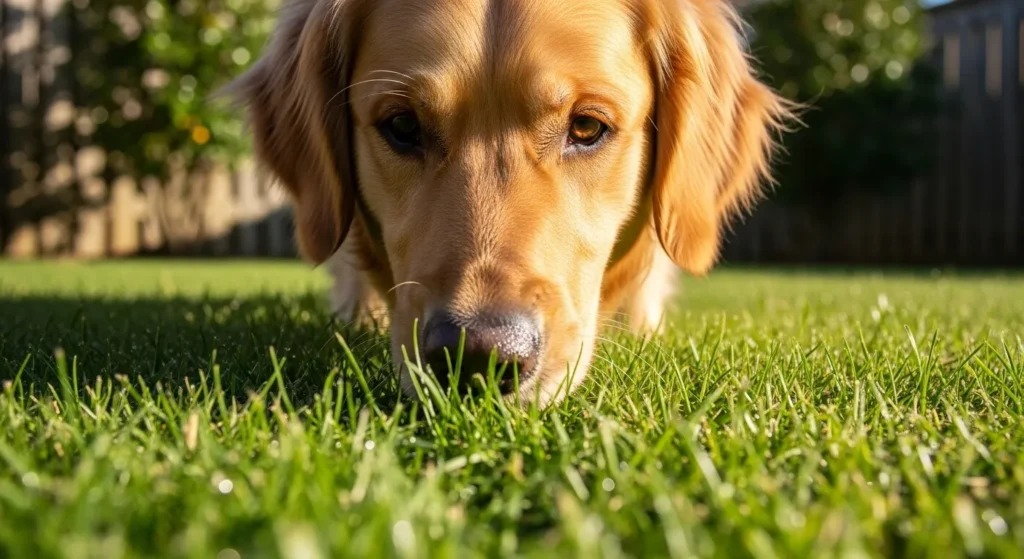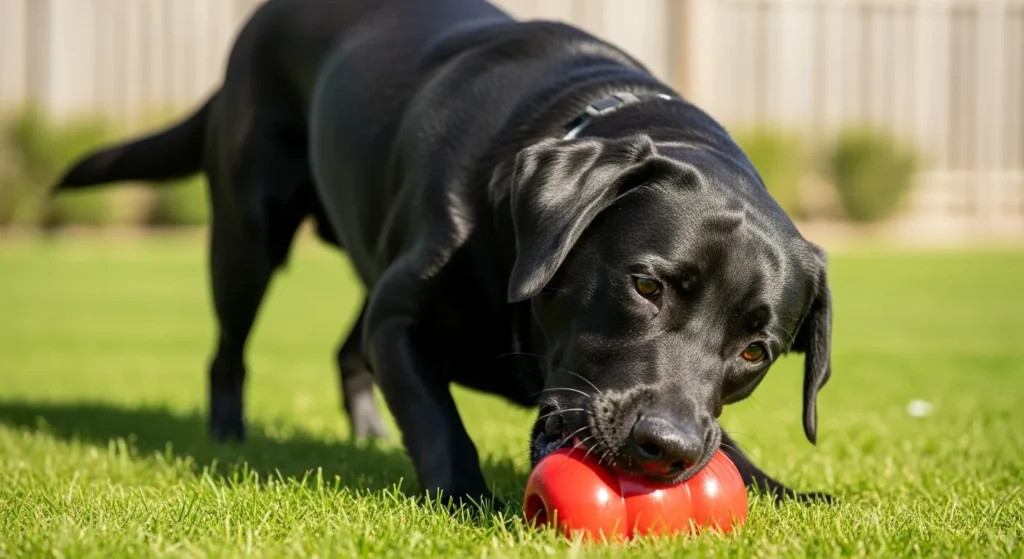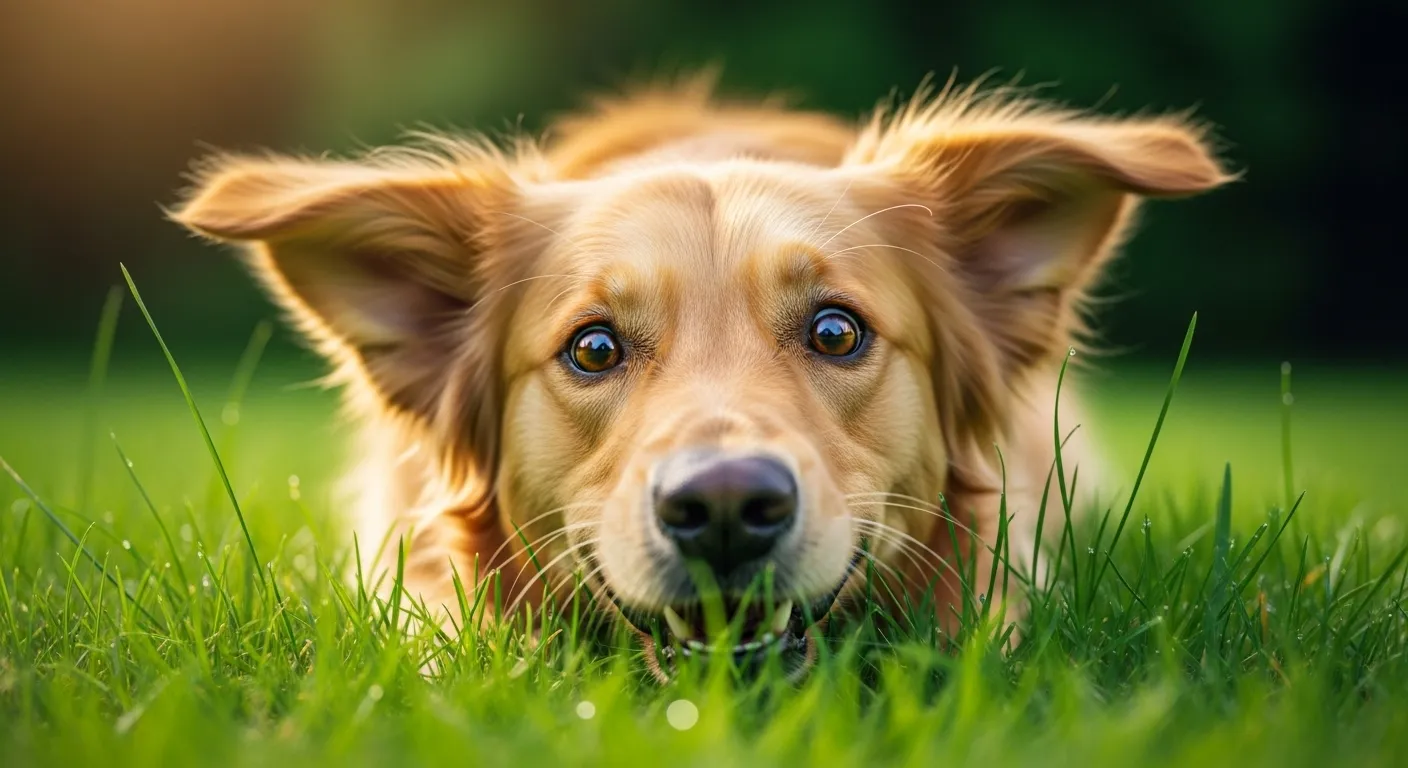Dogs often munch on grass. This behavior puzzles many pet owners. It can stem from several causes. Most times, it poses no harm. Read on to learn the facts.
Common Reasons Dogs Eat Grass
Dogs eat grass for different reasons. Here are the main ones based on vet insights and studies.
- Instinct from ancestors. Wild dogs and wolves sometimes eat plants. Your dog may do the same. Up to 47% of wolf stomachs contain grass traces.
- Need for fiber. Grass adds roughage. It helps with digestion and bowel movements. A 2007 study showed dogs eat less grass after meals.
- Boredom or stress. Dogs left alone may chew grass to pass time. It acts like a habit. More play can reduce this.
- Upset stomach relief. Some dogs eat grass to vomit. But studies show only 25% vomit after. Fewer than 10% seem sick before.
- Taste or texture appeal. Many dogs like how grass feels or tastes. Younger dogs do this more often.
- Possible nutrient gap. Rare in balanced diets. One case: a poodle stopped after high-fiber food.
- Parasite removal. Grass may wrap around worms in the gut. This helps pass them out.
These reasons come from research up to 2025. No major changes in findings.
Is Eating Grass Safe for Dogs?
Grass itself is usually safe. Dogs have done this for years. But watch for risks.
- Chemicals on grass. Pesticides or herbicides can poison dogs. Use the ASPCA site to check toxins.
- Parasites. Hookworms or roundworms hide in fecal matter on grass. Monthly preventives help.
- Too much grass. Can cause blockages. Rare, but leads to surgery if mixed with other items.
- Toxic plants nearby. Avoid areas with harmful weeds.
If your yard is chemical-free, small amounts cause no issue. Check with our pet symptom checker for concerns.

When to See a Vet
Most grass eating needs no action. But some signs mean a checkup.
- Frequent vomiting after grass.
- Loss of appetite or weight.
- Diarrhea or constipation.
- Lethargy or pain signs.
- Sudden increase in grass eating.
- Blood in stool or vomit.
These could point to gut issues like pancreatitis. A 2024 study links excess grass to boredom, not always illness. Use our pet age calculator to track health by age. See a vet if unsure.
For related reads, check why is my dog shaking.
How to Stop Your Dog from Eating Grass
You can curb this habit. Try these steps.
- Add fiber to diet. Switch to high-fiber food. Ask your vet. Safe veggies like broccoli work too. See can dogs eat broccoli.
- Boost exercise. Longer walks or games reduce boredom. Play fetch daily.
- Provide toys. Puzzle feeders keep them busy. Avoid leaving them alone long.
- Train with commands. Use “leave it.” Reward with treats for obeying.
- Grow safe grass. Plant wheatgrass indoors. It’s a healthy option.
- Distract outdoors. Carry toys on walks. Redirect attention.
- Check for anxiety. If stress-related, more time together helps.
These methods come from behavior studies. They work for most dogs.

Other Foods Dogs Might Try
Dogs explore many items. For safe fruits, read what fruits can dogs eat. Avoid risks like can dogs eat avocado. Use our pet food safety checker for quick checks.
